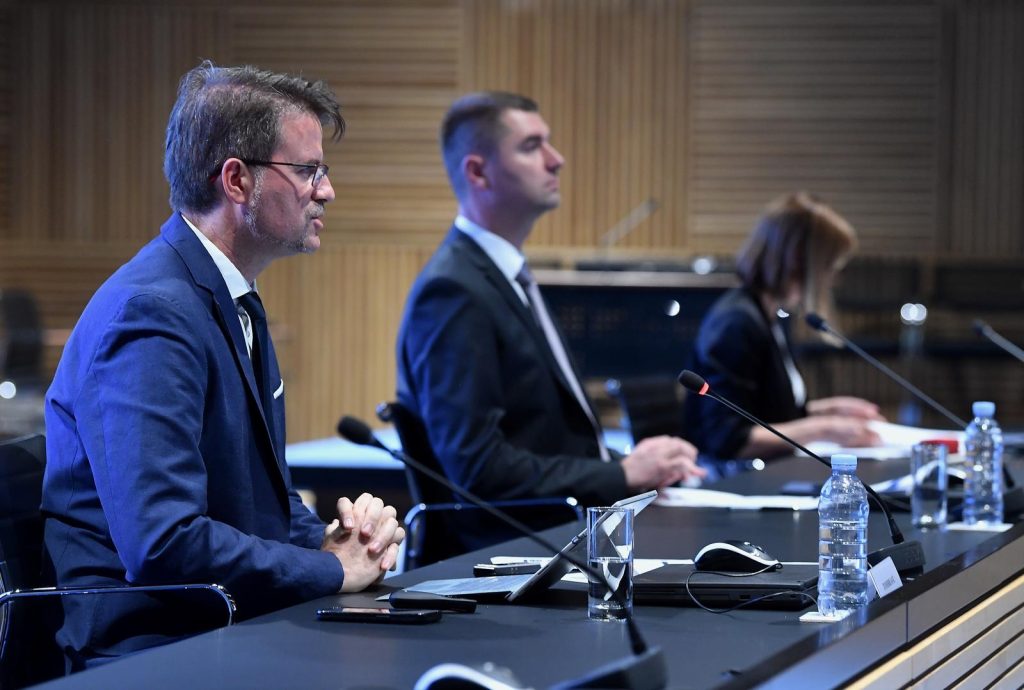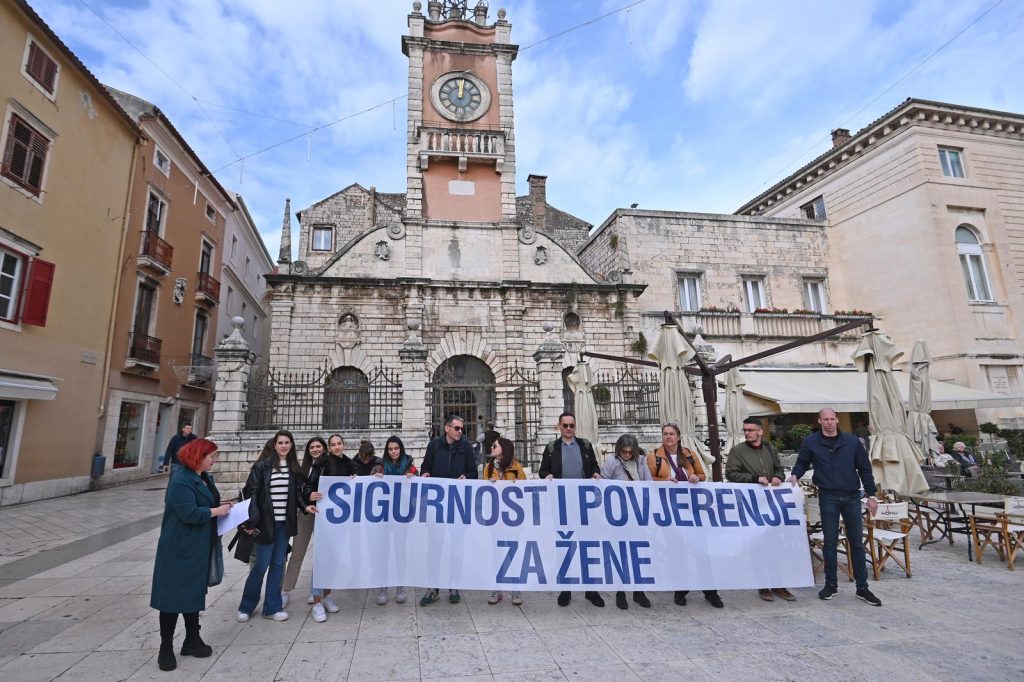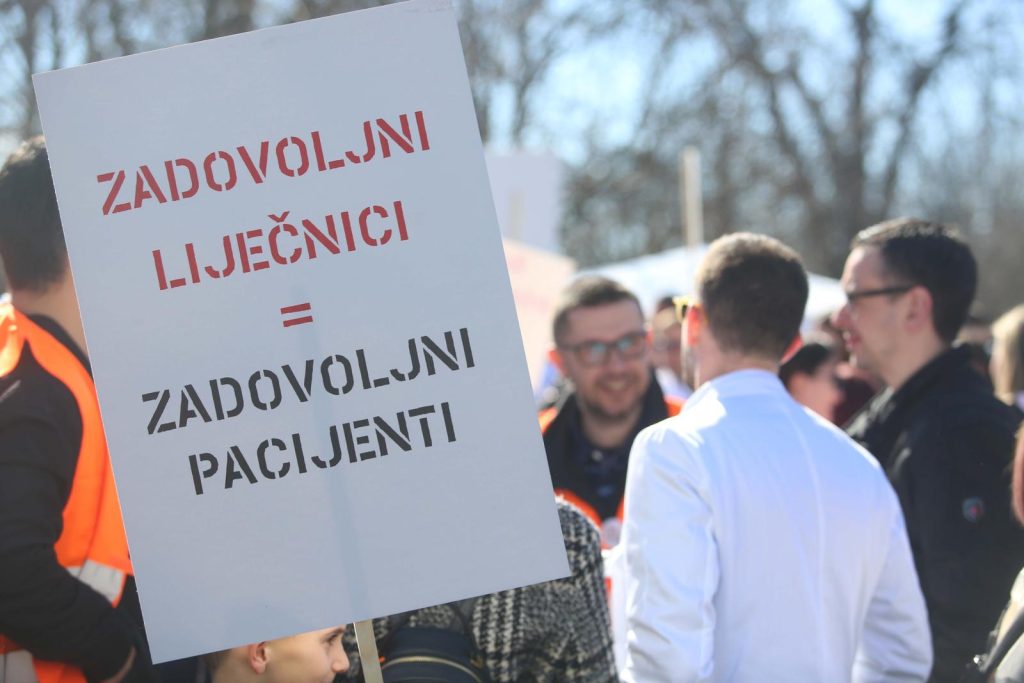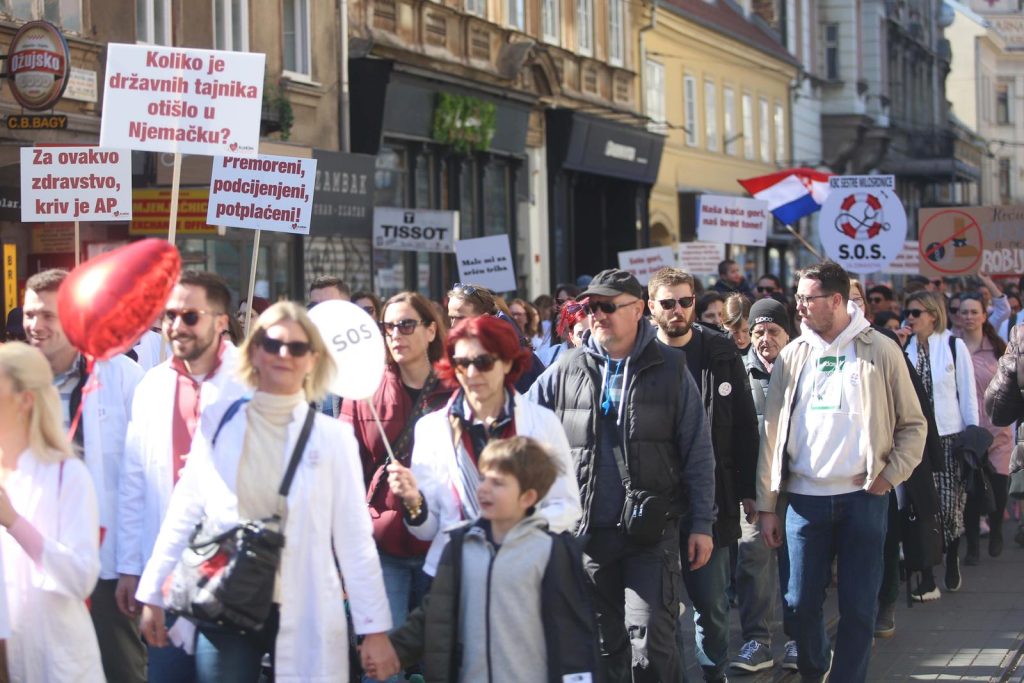January the 12th, 2024 – This week in Croatian politics, big claims that Croatia has been at the top of the EU’s economic polls for months now have left many with raised eyebrows. Doctors have given the government a deadline of the end of the month before another strike, and more.
The PM’s adviser claims that Croatia has been at the top of the EU in economic polls for months

As Index vijesti/news writes, Zvonimir Savić, the Prime Minister’s Special Adviser on the Economy, was a recent guest on N1 Newsroom. During his appearance, he commented on the wage increase and the announced strikes, as well as the government’s economic analysis, which claims that the situation currently looks ideal.
“When a question is asked about this particular situation, the indicator of economic sentiment is the best thing to look at, because it’s created by surveying consumers and businesses across all EU countries. The survey is conducted once a month and we can see that Croatia was first in the entire European Union over 11 of the last 22 months, which means that the largest number of respondents expressed a positive opinion in terms of economic growth here. There’s more optimism now than there are negative attitudes. I mean, the entire series of indicators is positive and Croatia has always been in the top five countries”, stated Savić.
However, when you talk to people on the ground, be they employers or employees – they continue to complain. Wages aren’t increasing “because there’s no money”, and at the same time, employees express their dissatisfaction because their existing wages simply aren’t high enough for them in this current situation of huge price increases and a general increase in the standard of living. For most people, what individuals in Croatian politics spout on TV is of little assurance, if any at all.
“Let’s go in order. Of course there are certain difficulties, things can always, always be better. However, when we look at the relationship Croatia has with other EU countries, the data we’re currently seeing is more than optimistic.
If we look at the averages for 2023, 2024 and 2025, Croatia would be third. If we look at the last three years, Croatia has the second fastest economic growth rate. In our national resilience recovery plan, there is a whole series of reforms that contribute to relieving the burden on businesses,” explained Savić.
The opposition, on the other hand, claims that the government relies on European Union money, so it can carry out reforms and “be creative”.
“It’s not creativity. You must have the economic potential to be able to contribute to wage growth. Although it’s an election year, our budget deficit is the smallest in the entire EU. While I’m on the topic of the EU, you need to show promise in order to get your hands on its cash in the first place. You must have a management and control system. How successful we’ve been is shown by the fact that Croatia is currently in a surplus of 13.5 billion euros in terms of the money we deposit and what we withdraw. These are huge funds that we invest in economic growth and development. Regardless of EU money, we’d still be carrying out these reforms,” assured Savić.
This year will be a challenging one, regardless of the situation here in Croatia, because the strongest country in the European Union – Germany – is in an exceptional crisis. “We also cooperate with other countries. It’s true that certain difficulties in Germany may affect some of our sectors, but Croatia is a small and open economy.”
Zvonimir Savić also explained what to do after the end of the existing measures in April, as well as what to do with the announced strikes of judges and doctors who are deeply unhappy with “false promises” from Croatian politics..
“We hope that there will be no need to bring in more special packages. The inflation rate has slowed down significantly, it is currently below five percent and there will probably be no need for the introduction of any new measures. This year, Croatia should have an average rate of finance lower than anywhere else in the EU except Sweden and Finland. That’s no accident. As for the strikes, it isn’t true that inflation “ate” anyone’s salary increases.
There are some limits that are budgetary and some which are legal, there some things that are negotiable… If we look from the end of 2016 until today, inflation was around 29 percent, wages grew by 57 percent on average. Real purchasing power increased by almost 25 percent. As of October 2016, the average salary increase for doctors was 63 percent, 69 percent for nurses and technicians. I don’t want to say that we plan to stop there, but such an increase has never been recorded before,” concluded Savić.
Croatia defines femicide – introduces it as a new criminal act

As Index vijesti/news writes, this week, the government sent amendments to the Criminal Code, the Criminal Procedure Act and the Act on Protection from Domestic Violence to parliament. As part of it, a new criminal offence is set to be introduced – the aggravated murder of a woman (femicide).
“These three laws are part of our political will, which is aimed at further suppressing violence against women, children, and shielding them from domestic violence. This is actually the third round of changes in our mandate alone aimed at fighting violence, and in its content, it may introduce the most extensive and significant changes thus far,” Prime Minister Andrej Plenković said at the government session held on Thursday.
He pointed out that the amendments to the Criminal Procedure Act significantly expand and strengthen the rights of victims of violence – the victim’s right to appeal against a decision on precautionary measures is being introduced, 100 metres is now prescribed as the minimum distance when precautionary measures are imposed, and in the case of a violation of precautionary measures, the police have the authority to arrest the abuser, and the court is obliged to decide within 24 hours on the replacement of precautionary measures with pre-trial detention of such individuals.
In addition to all of the above, the new shift initiated by Croatian politics means that the victim is set to get the right to be accompanied by a trusted person throughout the entire procedure for support.
Amendments to the Act on Protection Against Domestic Violence is set to remove the offence of sexual harassment and transfer it to the sphere of criminal responsibility. Meaning that the punishment for sexual harassment will be far harsher. The plans are also to increase the fines for misdemeanors and stipulate that only prison sentences can be imposed for any violation of protective measures.
At the same time, the Prime Minister pointed out that the amendments to the Penal Code increase the penalties for rape and child sexual abuse. On top of that, the statute of limitations for the prosecution and execution of punishment for all serious crimes of sexual abuse and the exploitation of children is going to be abolished.
A special criminal offence is now going to be introduced – femicide, for which a prison sentence of at least ten years to long-term (life) imprisonment will be imposed.
“In relation to the article that was submitted for public consultation, we refined the description and features of this criminal act, which in the EU today are defined in their criminal legislation by only four other member states: Cyprus, Malta, Spain and Belgium,” explained Plenković.
In accordance with the Istanbul Convention, the concept of gender-based violence against women is being introduced, which is prescribed as an aggravating circumstance when committing a criminal act.
“By introducing femicide and the definition of gender-based violence, we’re sending out a very clear message to all segments of society that killing women and violence against women just because they are women is totally and utterly unacceptable under any circumstance,” said the Prime Minister.
doctors threaten another strike, warning the government – you’ve got until the end of the month

As Index vijesti/news reports, doctors’ associations and unions have announced that they intend to start preparations for union actions, including a strike. This will occur if the powers that be in Croatian politics fail to meet their demands by the end of January. This includes but isn’t limited to an official proposal for the appropriate coefficients.
“Having learned from the the bad experience we had back in April last year – the broken agreement and broken trust – we’re once again asking the government and its president to immediately fulfill what was agreed and fix what was broken,” said the president of the Croatian Medical Union, Renata Čulinović Čaić, at a recently held press conference.
The Croatian Medical Union (HLS), the Croatian Medical Chamber (HLK), the Croatian Association of Hospital Doctors (HUBOL), the Coordination of Croatian Family Medicine (KoHOM) and the Croatian Young Doctors Initiative, all expect to receive an official proposal for appropriate coefficients for doctors by the end of next week. They believe that the current one being offered by Croatian politics isn’t remotely acceptable.









